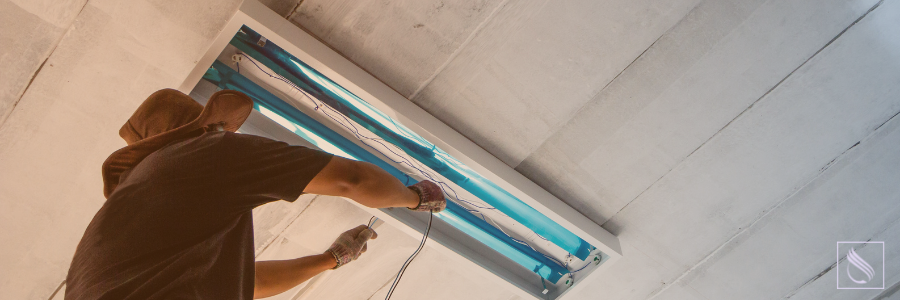“We must fix the water leaking from the roof,” shouts a parishioner. “There are water stains running down the walls of our church!”
Does this sound familiar? If so, you’re not alone. What if I told you there was a way to avoid this conversation, and, more importantly, avoid the whole situation?
It is important to note that insurance policies do not cover items that have stopped working due to wear and tear or overuse. As the insured, you have the responsibility for the upkeep and maintenance of your property. Property maintenance includes small projects, like changing a light bulb or a furnace filter, along with more extensive procedures, such as painting, replacing fixtures, replacing the roof, or replacing an HVAC unit when it is nearing the end of its life. By addressing things before they escalate, maintenance can prevent unexpected problems from occurring in the future.
You may be saying to yourself that regular maintenance will get expensive. It might, but in the long run it will save you money. For example, keeping your roof clear of snow and debris can help it last longer, so you won’t have to pay for a new roof before its expected time. Small things around every building can break, but maintaining them can keep them in better condition and prevent additional damage.
Performing the necessary maintenance can also increase safety and minimize the risk of injuries. If you fail to keep your building safe for your attendees, you may even find yourself in legal trouble.
Further, proactively keeping your property in good condition helps maintain its property value and the property values of the area. Overall, your property maintenance strategy will save you money and keep everyone who enters the building safer.
A Few Ways to Maintain Your Property
1. Check everything periodically
Doing a walk-through every few months is a great way to identify potential damage, allowing you to handle the repairs immediately. The inspection doesn’t have to be thorough, but you should look at areas where significant problems could be forming. This routine task could also help you prevent future emergencies that can end up costing a lot. Using Adventist Risk Management, Inc.’s (ARM) seasonal maintenance inspection forms can make the job quicker and easier and can ensure you (or others) do not forget important items.2. Complete routine maintenance
Occasionally, you’ll need to take care of routine jobs to keep the building functional. It can help prevent significant problems in the future if you regularly do things such as change the air filters, service the HVAC system, maintain the landscaping, check the smoke detectors, and change the batteries on select devices.3. Focus on high-traffic areas
Churches and schools get a lot of traffic, and some areas are busier than others, especially foyers, bathrooms, fellowships halls, and offices—just to name a few. The floors and walls in these areas may require extra attention. Because they’re likely to require more work, focus your inspections and maintenance on areas that are used by the highest number of people.4. Repair damage immediately
Before it has the chance to worsen, immediately take care of any damage you notice around the property. It might be tempting to put off a minor repair and wait until it becomes essential, but this could end up costing you more money, especially if a malfunctioning piece of equipment damages other parts of the building.5. Monitor for mold
Mold can do extensive damage to your structure and can also be a sign of rotting wood underneath it. Keep an eye out for mold near your plumbing fixtures. You must address the issue immediately, as mold can also signal a potential plumbing problem. If mold is detected, you’ll need to clean the area thoroughly before people can use the building again.6. Keep to code
It is essential that the entire building is always up to code. Your maintenance schedule should focus on ensuring the property meets your local building codes because legal problems could follow if you don’t have all upgrades in place at any given time. Make a list of needed upgrades and designate it as a project, tackling the items one at a time. You can also include this project on your list of offering categories so you have a dedicated fund where members can set aside money for this.7. Get assistance
Property maintenance is a lot of work, so consider hiring a professional if necessary. You might find a single company that handles all the maintenance, including hiring subcontractors, or you can look for various contractors to complete the work for you. Hiring experts to handle the jobs is the best way to ensure the projects are completed safely. When hiring professionals, make sure they carry the necessary insurance, such as workers’ compensation and liability insurance. Ask to see a copy of their current ACORD 25 certificate of liability insurance form. An ACORD certificate of liability insurance is a document that proves you (or, in this case, your vendor) have liability insurance coverage. It is not rude or invasive to ask for this information; in fact, it can end up protecting your church from legal trouble in the future.Risk management is all about staying ahead of the game, and these tips can provide you with a framework for keeping your building in a functional state. First, you identify the risk, and then you plan and create a strategy to control the risk. Ultimately, with the enforcement of prevention resources and practices, you can have peace of mind knowing you were proactive. And if an accident does occur, Adventist Risk Management, Inc., is ready to assist you.


